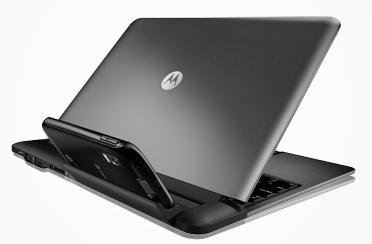Dream Modular Computing System Powered by Tegra 2


My dream modular system starts with a thin smartphone, not unlike Motorola's Atrix 4G. The OS on the phone is not important, but it would probably be easier to create such a system with Android. The phone should have high-speed connectivity options (4G) and expandable memory for adequate storage.
A thin notebook module would come next, much like the Motorola Lapdoc for the Atrix. This is essentially a keyboard, trackpad and display, as the notebook would use the phone's CPU, memory and mobile broadband. Rather than a clumsy dock behind the notebook display like Motorola is using, the phone should lie flush in a well in the palm rest of the notebook. Pop the phone in and the notebook comes to life, and charges the phone battery simultaneously.
The dual OS method really shines when you consider a desktop module. Peripherals (monitor, keyboard, etc.) can be plugged into this small module/dock that together create a complete desktop computer when the phone is dropped in the dock.
This modular system could include a tablet with a flush dock on the back. The tablet module would be similar to the notebook module using the phone's powerful CPU and memory. This could either use a second OS as in the notebook/desktop or simply use the phone's OS if it's optimized to handle tablets. The key is to make the ecosystem as easy to use as possible without user intervention. Plug and play is the name of the game.
Why would a such modular system be advantageous over separate devices? It would allow consumers to buy only the modules needed. Using the phone's processing power has the advantage of upgradability; when the phone is updated all the modules benefit since they run off the phone system. Another attribute of a modular system is the notebook and tablet modules can be made as light as possible, making the entire system very portable. A modular system using the phone means the user's contacts, files, email and media are always available no matter what type of system is being used.
I believe the Motorola Atrix 4g/laptop and the Lenovo LePad/U1 system clearly demonstrate that a modular system like I want is possible today. Phone hardware has evolved to a point it can easily power the modules without compromise. I would buy such a system if someone would make it, and I don't think I'm alone in that regard.